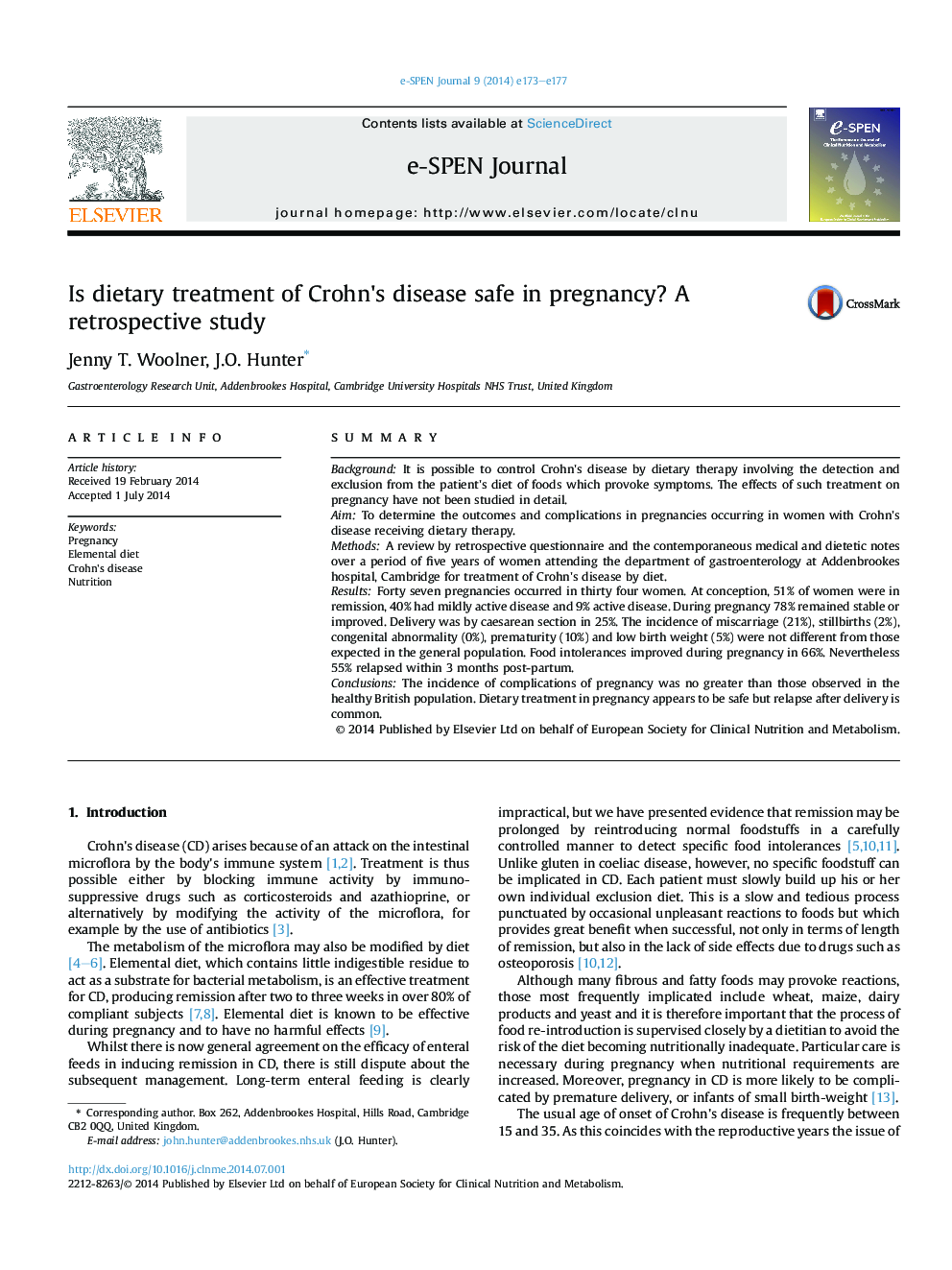| Article ID | Journal | Published Year | Pages | File Type |
|---|---|---|---|---|
| 2685744 | e-SPEN Journal | 2014 | 5 Pages |
SummaryBackgroundIt is possible to control Crohn's disease by dietary therapy involving the detection and exclusion from the patient's diet of foods which provoke symptoms. The effects of such treatment on pregnancy have not been studied in detail.AimTo determine the outcomes and complications in pregnancies occurring in women with Crohn's disease receiving dietary therapy.MethodsA review by retrospective questionnaire and the contemporaneous medical and dietetic notes over a period of five years of women attending the department of gastroenterology at Addenbrookes hospital, Cambridge for treatment of Crohn's disease by diet.ResultsForty seven pregnancies occurred in thirty four women. At conception, 51% of women were in remission, 40% had mildly active disease and 9% active disease. During pregnancy 78% remained stable or improved. Delivery was by caesarean section in 25%. The incidence of miscarriage (21%), stillbirths (2%), congenital abnormality (0%), prematurity (10%) and low birth weight (5%) were not different from those expected in the general population. Food intolerances improved during pregnancy in 66%. Nevertheless 55% relapsed within 3 months post-partum.ConclusionsThe incidence of complications of pregnancy was no greater than those observed in the healthy British population. Dietary treatment in pregnancy appears to be safe but relapse after delivery is common.
